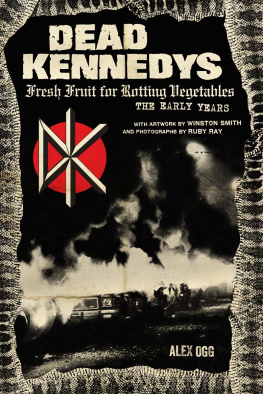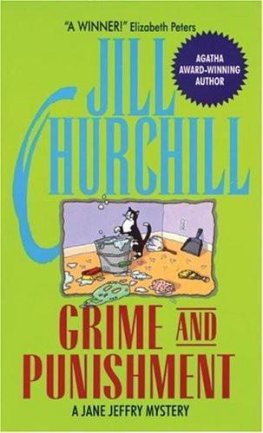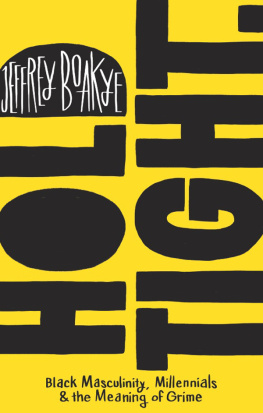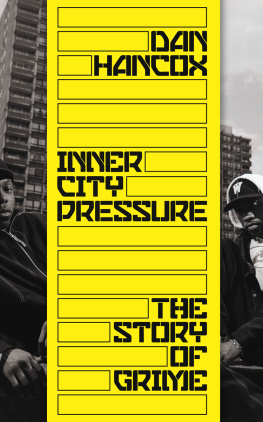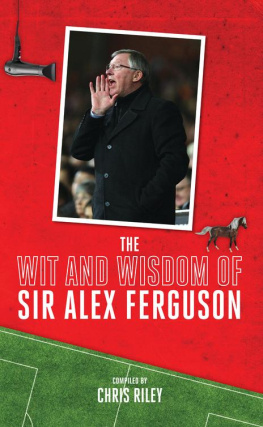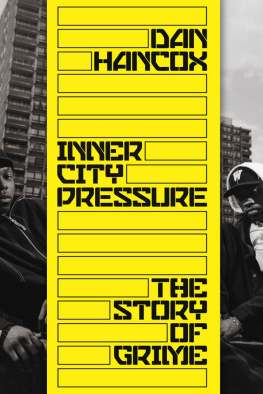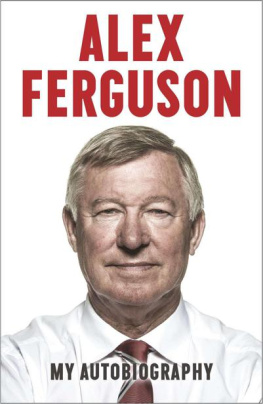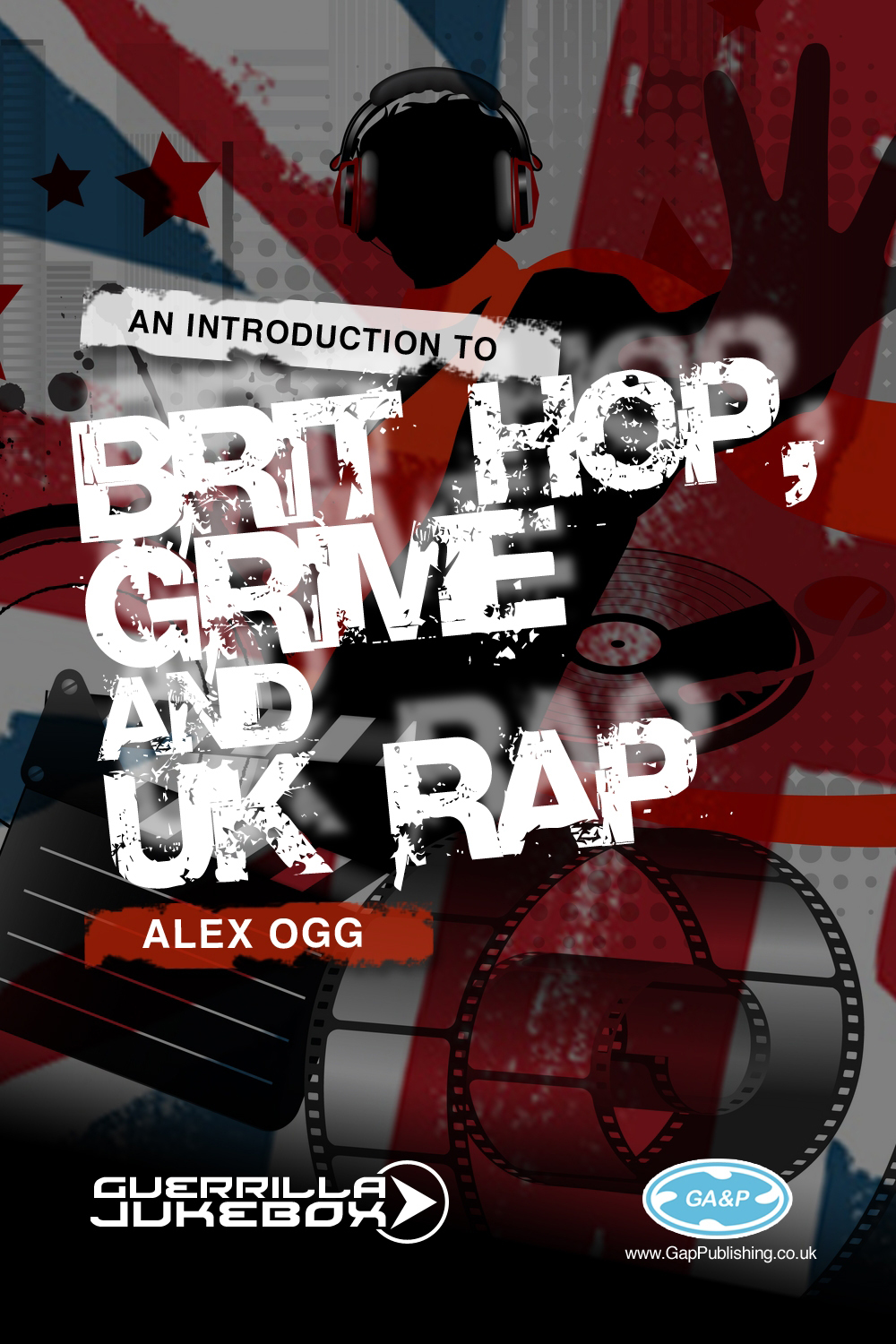This book is sold subject to the condition that it shall not, by way of trade or otherwise, be lent, resold, hired out or otherwise circulated without the publishers prior written consent in any form of binding or cover other than that in which it is published, and without a similar condition being imposed on the subsequent purchaser.
The characters and situations in this book are entirely imaginary and bear no relation to any real person or actual happening.
The right of Alex Ogg to be identified as author of this book has been asserted in accordance with section 77 and 78 of the Copyrights Designs and Patents Act 1988.
Paid In Full
Has UK Hip-Hops Moment Come?
You feel you could set the world on fire
If you had a deal
But lets be real about this
It aint what you know, its who you know
Its all a game and were all part of the show
Whats the role that you play?
Can you do it your way?
You need a hell of a lotta luck - being from the UK
A decade ago left-field British MC Blade rapped the above lyric on the title-track to his album with Mark B, The Unknown . When he did so, he could surely never have foreseen UK hip-hops current ascendancy, with grime artists staging a sit-in on our domestic charts and being subject to come hither entreaties from the grandees of the musics originating nation, America. It has been a difficult journey in every sense; a story of music industry indifference, artistic misfires and more than anything else, the struggle to forge an identity.
***
Hip-hop originated as an African-American art form, and while each country it colonises moulds the culture in its own image, Britains struggle to do so is unique. If only because, as it is often said, America and Great Britain are divided by a common language. For more than two decades, conventional wisdom held that, while the UKs embrace of hip-hop was enthusiastic, it singularly failed to generate indigenous records of a stature and calibre sufficient to rival those of imported American artists. The truth is more layered and complex, and populated by its own set of diverse characters and vibrant stories, than that simple conclusion might suggest. While no pure hip-hop act was able to command the respect or sales afforded imported stars until recently, the success story of the British hip-hop variant lay with artists who took the genre to new stylistic territory; from the Streets and Dizzee Rascal to the Ninja Tunes label and Massive Attack.
No UK MC prior to the middle of the new millennium came close to experiencing the wealth of a P Diddy or the notoriety of a Tupac, and few had such expectations. The commercial success of Hip-Hop USA led to a specialist infrastructure for distribution and promotion that could never be replicated in such a comparatively tiny market as the UK. British MCs were unable to leapfrog into the charts by guesting on a popular R&B artists single, as the UK lacked the depth of urban artist rosters, ala Diddys Bad Boy or Irv Gottis Murder Inc. A hot new artist could not expect to see all his homeys sign deals either, as again was the case Stateside. Add to that a dearth of media outlets, especially press and radio, and UK hip-hop came to resemble a subculture by default as much as design.
There was a further intractable conundrum. It was impossible for UK MCs to sound compatible with their American brethren without compromising authenticity. One of the reasons why French hip-hop was successful in its own terms, but also gained critical recognition in America, is because of the transparency of linguistic and phonetic variance. Others have argued, militantly, that the early UK hip-hop community was complicit in rejecting success on any commercial level. So while some decry the lack of respect afforded homegrown talent, a counter view, puritanical and insular, maintained that it was unwanted, rather than unwarranted.
Many of the issues around authenticity are common to both American and British artists. Bogus street affectations were historically prevalent in both, but more specifically for UK hip-hop artists, a far greater percentage of performers were white. Just as class operated as a symbol of authenticity in rock n roll and pop Joe Strummers Pygmalion-in-reverse Cockney aphorisms living on in goddaughter Lily Allens commoners canon pigmentation was clearly a complex issue for UK rappers despite their frequent, and usually heartfelt, denunciations of racism. Some were guilty of over-compensating notably in their embrace of African-American street slang and vernacular. In sleeve art, white MCs often cloaked their faces with hoodies, as if to obscure their ethnicity an idiosyncratic reverse cultural hijab.
Yet the tradition of despising the term Brit hop, principally because of the baggage of under-performance it carried, gradually receded from the start of this century. Increasingly there was a sense of pride in home-grown achievements, and a more playful acknowledgement of the number of white, middle class contributors.
American hip-hop was warmly received in Britain, at least in some quarters, from the outset. By the time Rappers Delight became a global hit, pacesetters in the UK were acquainted with the format through the circulation of Bronx block tapes. Some important contributions came from the punk fraternity, notably Mick Jones of the Clash, who subsequently brought sampling to rock music with Big Audio Dynamite. The Clashs 17-show stand at Bonds in New Yorks Times Square in 1981, where support acts included Grandmaster Flash and the Sugarhill Gang, was an important moment of cross-pollination. When Futura 2, another Bonds veteran, came over to spray backdrops for the Clashs UK shows in October 1981, a clutch of graffiti artists around West Londons Ladbroke Grove were inspired to follow his example. Cool Lady Blue, an associate of Sex Pistols manager Malcolm McLaren, was a pivotal figure at the Roxy (the venues that would cradle both the London punk scene and New York hip-hop shared a name if not a musical culture). McLaren himself, alongside the World Famous Supreme Team, enjoyed chart success with Buffalo Gals, a Top 10 UK hit as early as December 1982 its video the first time Britain was introduced to the four-cornered concept of hip-hop (deejaying, emceeing, graf and break-dancing).
The Art Of Noises Beat Box was the nearest the UK came to an artistically meritorious hip-hop-pop composite along the lines of Blondies Rapture. Though it only reached number 51 in Britain, the single was the first time an established UK act had taken elements of hip-hop and used them with a degree of finesse and intelligence. They would also secure a degree of American success, with Hey DJ reaching #15 on Billboards Hot R&B chart in June 1984. Alongside Buffalo Gals in March, it comprised a one-two punch for UK hip-hop on the American R&B charts, a breakthrough it would struggle to consolidate. Several other mainstream acts, including McLarens one-time protg Adam Ant (Ant Rap), Captain Sensible (Wot) and Wham! (Wham Rap), simply aped the talking lyric approach, forsaking any of the musical culture that attended it and represented nothing approaching a legitimate UK hip-hop presence.
At the outset, received wisdom stated that the real stuff came only from America; that the cultural and economic conditions that forged hip-hop could not be replicated on foreign soil. Native artists were marginalised as inauthentic, just as UK reggae acts had been in comparison to their Jamaican counterparts a decade earlier. Birminghams Steel Pulse or Londons Misty In Roots were rarely given equivalent kudos, while the mixed-race UB40 were shunned completely by grass roots reggae fans. UB40 remain vilified to this day and its hard not to see that as partly a function of reverse racism. When a UB40 compilation CD was recently given away free with the Daily Mail one wag felt compelled to point out that theres going to be trouble when their readers find out that reggae stuff was originally made by black people.


